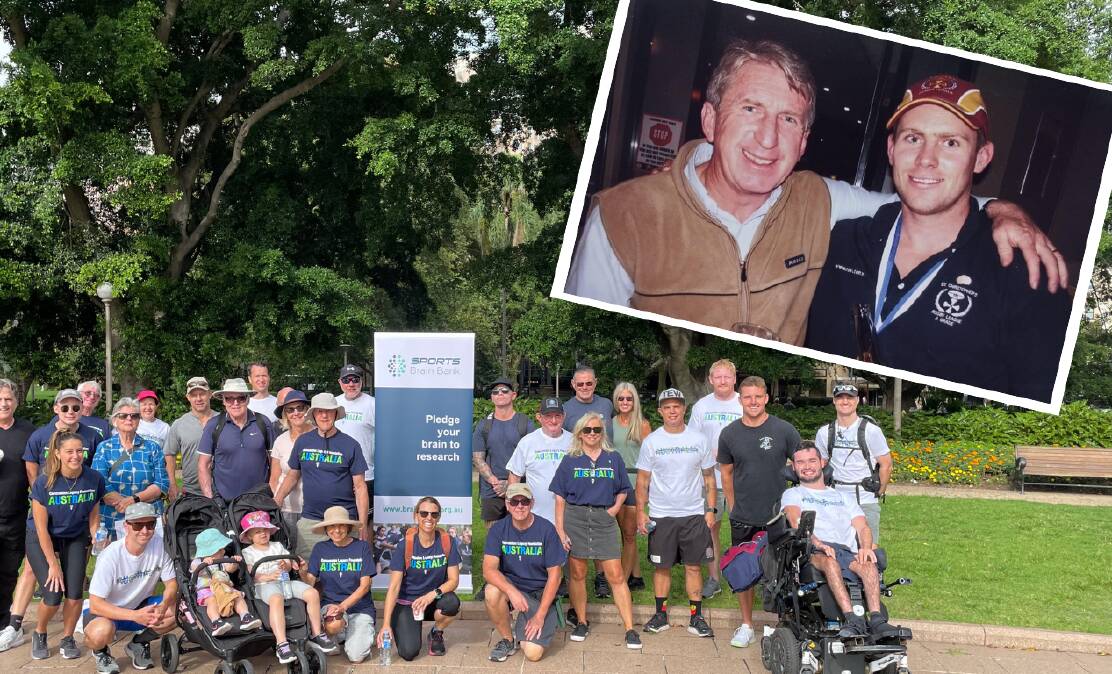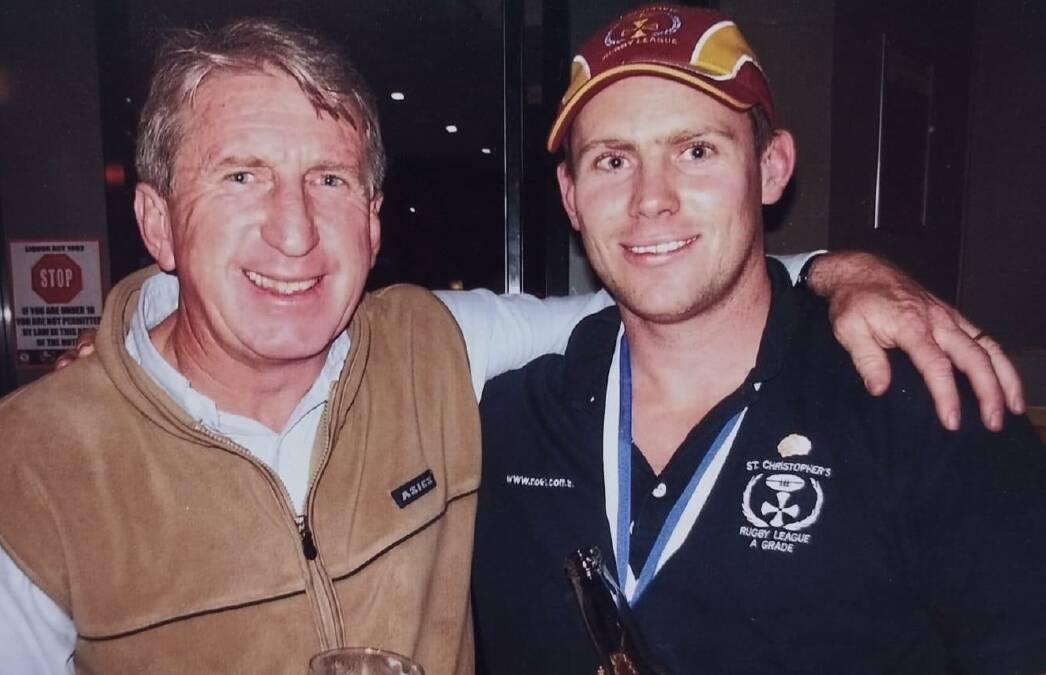
The Knights are playing away from Newcastle this weekend, but an event in the lead-up to the match will hit home for many in the rugby league community.
The Walk to End CTE will take place before the Knights clash with the Bulldogs at Accor Stadium on Sunday, with participants walking a lap around Sydney Olympic Park and to the stadium in aid of the Concussion Legacy Foundation.
CTE (Chronic traumatic encephalopathy) is a brain disorder likely caused by repeated head injuries. Knights legends Robbie O'Davis and James McManus are among a growing number of former players battling symptoms of the disease, which include memory loss, confusion, impaired judgment, impulse control problems, aggression, depression and anxiety.
The aim of the Walk to End CTE is to raise awareness of the condition, and that fight is a personal one for Andrew Mortimer, son of Bulldogs great Steve.
Steve Mortimer, who took repeated head knocks across his eight tests for Australia, 16 appearances for NSW and 272 games for the Bulldogs, was diagnosed with early onset dementia seven years ago at age 60. Due to his worsening condition, Steve has since moved into an aged care home where he receives full-time care.
"He's settled and as a family we're in a regular routine of visiting him at the aged care facility and also keeping him connected and getting him out as much as practical to catch up with family, friends and so on," Andrew said.
"So he's going okay, but it's not a nice experience. It's very hard emotionally, particularly for mum.
"Unfortunately dementia is a one way track, and its not lineal, but dad's pretty stable."
As well as taking part in Sunday's walk, Steve's family has also spoken publicly about his condition numerous times with a view to raising awareness about concussion in sport.
"We're a rugby league loving family obviously through dad and my uncles and myself," Andrew said. "All my cousins have played rugby league at various levels.
"So it's a big part of our lives and concussion is a growing area of concern for the game and I think something that the game is already addressing, but we'll need to continue to address and to identify ways to make the game as safe as possible with without taking away from the gladiatorial nature of the game.
"So for us it's a passion."

About 20 of Steve's family members and another 20 family members will walk on Sunday.
Steve's condition means attending rugby league games is not as feasible as it used to be, but Andrew said it was something they were hoping to do this season.
"We're probably working towards getting him out to a game or two when we can it's just a little bit harder, he needs a higher level of care than a year ago or 18 months ago," he said.
"And how much benefit he derives from those sort of functions is probably limited now. So for us it's more about what's best for him."
Concussion Legacy Foundation Australia executive director Annitta Siliato said having the Mortimers involved in the walk and the foundation was important for the wider community.
"I think it's great to have role models like the Mortimer family and Andrew because they are living the experience," she said.
"People that have been there and have experienced this, it gives them a voice.
"Since being in this role, I've met a lot of people of all ages who have been affected and the message has been that they've been embarrassed or ashamed to talk about it.
"But it's not a shameful thing. We need to remove the stigma and know that we can support people."
Ms Siliato said that aim to raise awareness also extended to educating players about concussion.
"We're not against sport, we love sport, but it's about making kids aware that if you do have a concussion, speak up," she said.
"Don't remain silent just so you can stay in the game and it's about educating coaches and clubs as well around the importance of speaking up.
"We want the culture to be that it's okay if you miss the game or two because it's for the long term health prospects of that person."
The topic of concussion in sport has grown in recent years, but Ms Siliato said the discussion still had a long way to go.
"In the last few years there certainly has been more information the media and it's great to see the professional level codes like the AFL and the NRL actually taking steps towards taking this more seriously with the introduction of stand down periods after a concussion.
"But I'm not sure whether or not that's reflected in the grassroots level.
"At a grassroots level, we don't have the same level of doctors and people watching out and maybe that's something the community could do like have concussion captains or people that are on the watch to see and make sure that if someone is hit that they are taking off the ground and assessed.
"So I think overall things are improving but I think there's still a lot more work to be done when we move down to those local levels of sport."







